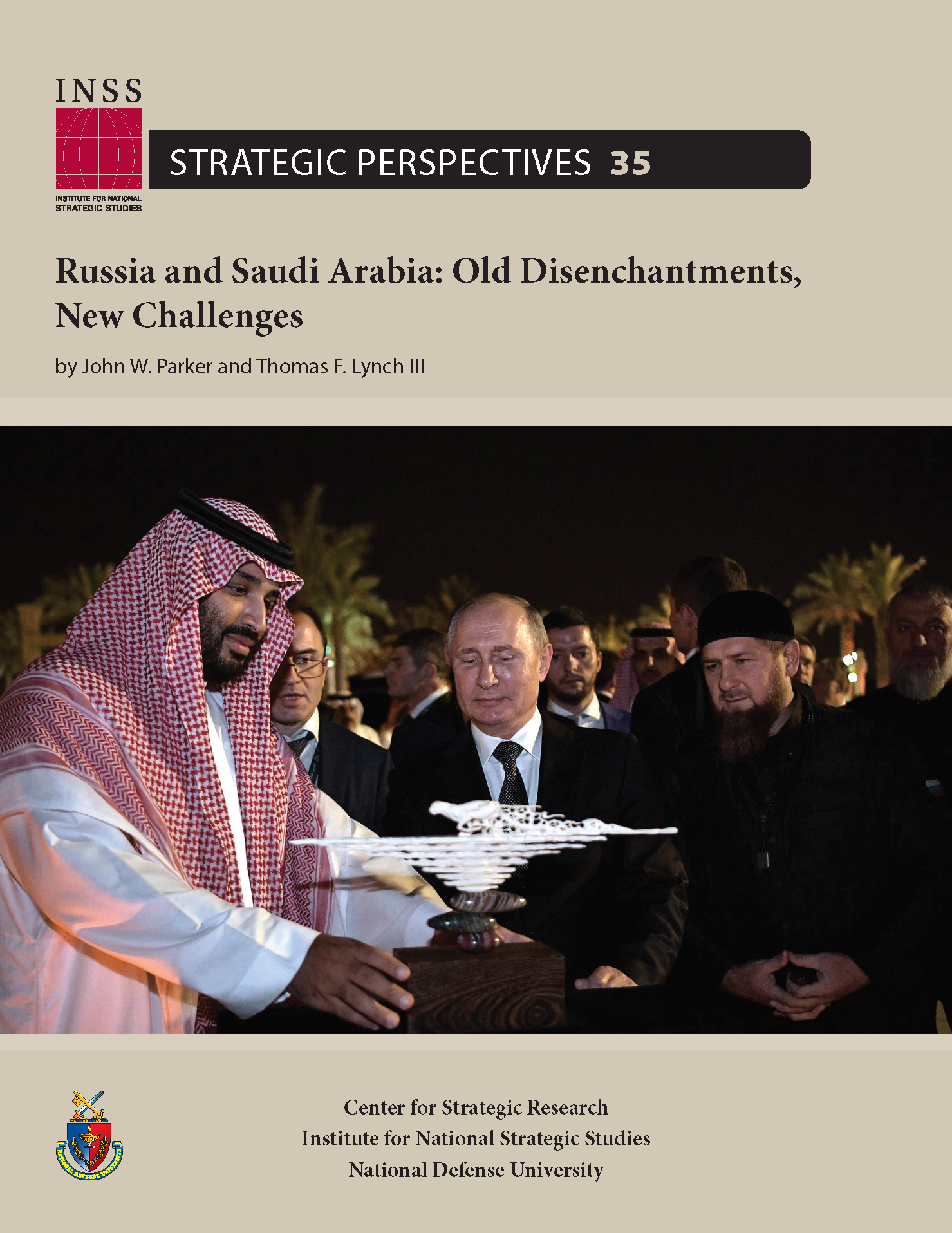John W. Parker and Thomas F. Lynch III
Executive Summary
 The Joseph Biden administration can manage its recalibration of relations with Saudi Arabia without unwarranted fear that Riyadh will view Russia as a safe-harbor alternative to the United States on a myriad of state-to-state interactions that are most important to the Kingdom.
The Joseph Biden administration can manage its recalibration of relations with Saudi Arabia without unwarranted fear that Riyadh will view Russia as a safe-harbor alternative to the United States on a myriad of state-to-state interactions that are most important to the Kingdom.While Russia’s transactional approach to foreign partners has at times given it advantages in some areas over the more value-based framework of U.S. foreign relations, there clearly have been limits to the Russian style of dealing with Saudi Arabia in this century. For now, Russian President Vladimir Putin appears to have lost his bet on Saudi Crown Prince Mohammed bin Salman (MbS) as a resolute Russian strategic partner. However, Putin will continue to do business when necessary with the Kingdom of Saudi Arabia (KSA) on a transactional basis given its role as a key player in the region, particularly in the expanded Organization of the Petroleum Exporting Countries (OPEC+). U.S. foreign policy during the Biden administration will do best to recognize that the Russia-Saudi partnership is a transactional one that will endure, but not at the highest order of broad functionality, including at times within OPEC+.
It was not just their clash over oil that spoiled Putin’s ties with MbS in the spring of 2020. Dealings between Riyadh and Moscow were already frayed, and the February–March 2020 collision between the two countries at the OPEC+ talks in Vienna simply reflected that relationship trajectory. Putin’s visit to Riyadh in October 2019 already had made clear that there would be no breakthrough in bilateral relations, and the OPEC+ connection was not sufficient to build bilateral relations to a truly comprehensive level of cooperation.
Actually, the October 2019 Riyadh summit brought a pause to 6 years of efforts by both sides to advance the Russian-Saudi relationship. The trend toward warmer ties gained momentum in 2013 as Riyadh and Moscow reacted to secret talks between Washington and Tehran that explored prospects for a nuclear deal. It was reinforced in Riyadh by President Barack Obama’s decision in August 2013 not to respond militarily to the Syrian regime’s use of chemical weapons against its own people. Then, the February–March 2020 OPEC+ oil price row between Russia and the KSA made conspicuous the important setback in this once-budding partnership.
Relatively soon after King Salman succeeded King Abdullah in January 2015, candidate and later President Donald Trump’s calls for withdrawing U.S. Soldiers from Syria and his mercurial declarations of readiness to meet with Iranian President Hassan Rouhani encouraged Riyadh to prioritize further improvement in relations with Moscow. Saudi unease over President Trump’s statements motivated Riyadh to continue the movement toward closer ties with Moscow in an array of areas, including coordinating with Russia to prop up global oil prices. The Russian Federation and the KSA both played up common interests despite important divisions over Syria, differences over Ukraine and Yemen, competing global energy interests, and longstanding mutual distrust.
As the Biden administration takes the stage in Washington during 2021, U.S. strategy must continue to factor Saudi Arabia’s pursuit of ties with today’s contemporary great power states: Russia and China. The Saudi-Russian relationship is certain to evolve again as the Biden team recalibrates relations with Riyadh and Moscow. Within this context, and even before the Biden administration, Saudi acquiescence to the fall 2020 Abraham Accords appeared to reflect a growing appreciation by Riyadh and its closest Gulf allies that Israel is increasingly a more reliable security hedge than the United States against Riyadh’s longstanding security rival, Iran.
Early in 2021, the Biden administration strongly signaled a far less positive relationship with Riyadh than during the Trump years or even in prior U.S. administrations: suspending Trump administration arms shipments to Riyadh; commencing a formal review of the longstanding Saudi-led war in Yemen; offering renewed nuclear weapons talks to Iran; allowing release of a U.S. intelligence report explicitly finding Crown Prince Mohammad bin Salman responsible for the brutal killing and dismemberment of expat journalist Jamal Khashoggi in October 2018; and President Biden’s insistence on calling directly to King Salman, not MbS, for official conversations. If the Saudis and Russians had reached a comprehensive strategic partnership by the end of 2020, these Biden administration moves might merit great scrutiny and fears that Washington was pushing Riyadh more deeply into Russian arms. Thus, a fact-based determination that the Russia-Saudi relationship did not consummate in such a close manner is an important assessment for the pursuit of U.S. foreign policy in the Gulf.
Clearly, critical factors in the Saudi-Russian relationship are different in 2021 than in 2020. After the raucous OPEC+ disagreements in Vienna in March 2020, Moscow and Riyadh both welcomed President Trump’s face-saving intervention to reconvene negotiations and help shape their outcome. The Biden administration has other concerns and priorities that make any future such specific interventions highly unlikely, but team Biden has a historic opportunity. By properly recognizing the inherent limits to Russian-Saudi strategic cooperation, the Biden administration can pursue a combination of competitive and cooperative strategies to address the security challenge from Iran in the region, decrease turbulence in world energy markets, buffer the United States from Russian and Saudi market pressure, and better prepare America for the eventual post–fossil fuel era—and all without worries that a tight Russia-Saudi partnership might somehow stand in the way.
No comments:
Post a Comment